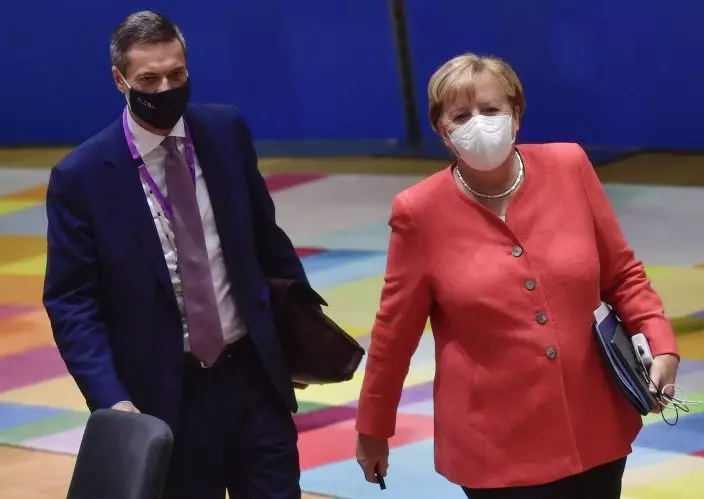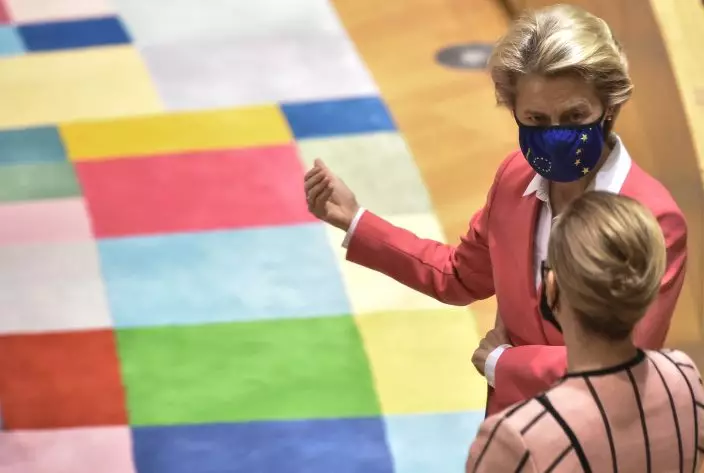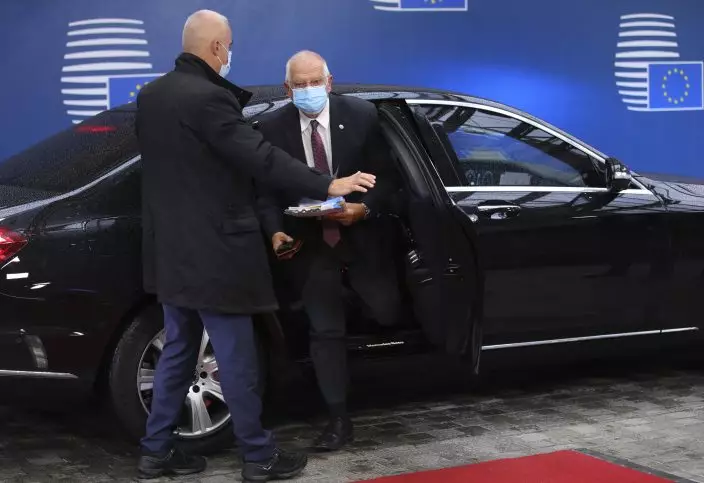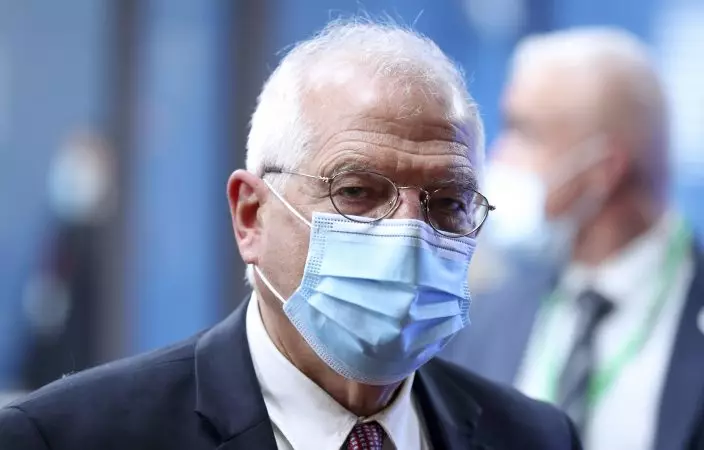The European Union on Friday officially slapped sanctions on 40 officials in Belarus that the bloc says are responsible for cracking down on peaceful demonstrators, opposition politicians and reporters, as well as for “misconduct” during the country's August presidential election.
The individuals subject to the sanctions that EU leaders endorsed overnight do not include Belarusian President Alexander Lukashenko, once dubbed Europe’s last dictator, but the leaders suggested this might happen later if he does not enter into talks with his country's political opposition.
Those targeted include Interior Ministry, police and security officials, as well as members of the Belarus Central Electoral Commission.

German Chancellor Angela Merkel, right, arrives for a round table meeting at an EU summit in Brussels, Friday, Oct. 2, 2020. European Union leaders will be assessing the state of their economy and the impact of the coronavirus pandemic on it during their final day of a summit meeting. (John Thys, Pool via AP)
“This sends a strong message of EU support to the democratic right of the Belarusian people to elect their president through free and fair elections, and our condemnation of repression and violence against people exercising their fundamental rights,” EU foreign policy chief Josep Borrell said.
Borrell said the European Union hopes its action “will encourage the Belarusian leadership to refrain from further violence, to free all the unlawfully detained people, including the political prisoners, launch a thorough investigation into all alleged violations and abuses, and engage in a genuine and inclusive dialogue with the opposition in view of finding a peaceful way out of the current crisis.”
Agreement on the sanctions was held up for weeks by one of the EU’s smallest countries, a standoff that embarrassed the world’s biggest trading bloc. Cyprus used its veto to block the move, which required a unanimous vote of the 27 EU members.

European Commission President Ursula von der Leyen, top, speaks with Denmark's Prime Minister Mette Frederiksen during a round table meeting at an EU summit in Brussels, Friday, Oct. 2, 2020. European Union leaders will be assessing the state of their economy and the impact of the coronavirus pandemic on it during their final day of a summit meeting. (John Thys, Pool via AP)
Cyprus wanted its EU partners to take action against Turkey for its energy exploration work in disputed waters off the Mediterranean island nation’s coast before it would agree to the Belarus sanctions. The deadlock was broken just after midnight when the leaders issued a statement in Cyprus' support and criticized Turkey.
All EU member countries, including Cyprus, reject the result of the Aug. 9 election that returned Lukashenko to power for a sixth term. They all want a new presidential election held in Belarus and agree that sanctions should be slapped on dozens of officials, perhaps even Lukashenko himself at some later point.
“The list of persons targeted will be under constant review, and the EU is ready to impose additional restrictive measures, if the situation does not improve,” Borrell said.

European Union foreign policy chief Josep Borrell arrives for an EU summit at the European Council building in Brussels, Friday, Oct. 2, 2020. European Union leaders will be assessing the state of their economy and the impact of the coronavirus pandemic on it during their final day of a summit meeting. (AP PhotoOlivier Matthys, Pool)
The leaders also urged the EU's executive arm, the European Commission, “to prepare a comprehensive plan of economic support for democratic Belarus.”

European Union foreign policy chief Josep Borrell arrives for an EU summit at the European Council building in Brussels, Thursday, Oct. 1, 2020. European Union leaders are meeting to address a series of foreign affairs issues ranging from Belarus to Turkey and tensions in the eastern Mediterranean. (Aris Oikonomou, Pool via AP)


